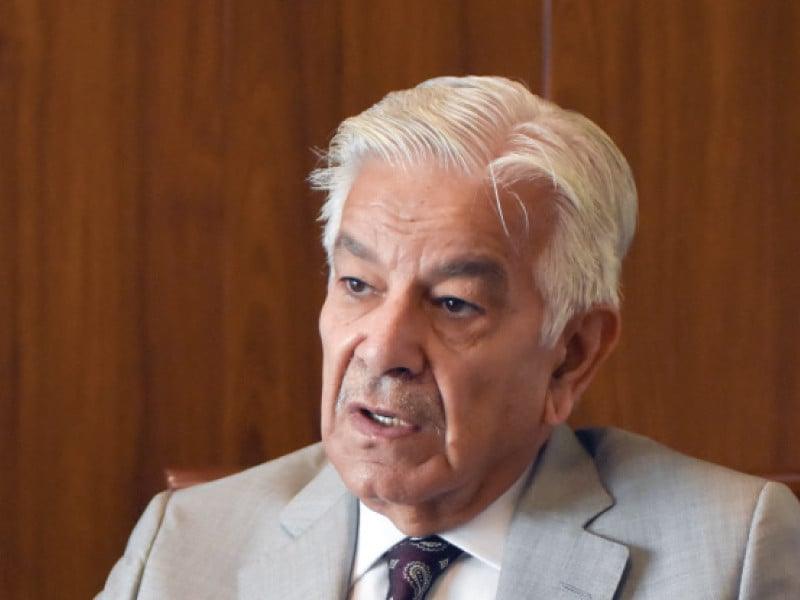Federal Defense Minister Khawaja Asif has said that if conversations are held between Pakistan and India, three key issues would be on the agenda.
Asif said the dialogue would focus on Kashmir, terrorism and water -related concerns and talk to Geo News.
He noted that terrorism has been underway in the last 20 to 30 years.
The minister added that this is a golden opportunity for both India and Pakistan to solve the Kashmir question.
Asif said, “There are three main points: Kashmir, Terrorism and Water. These are long -term questions in the last 76 years and need to be addressed. Pakistan is the greatest victim of terrorism. This is a golden chance for both countries to solve the question of terrorism. At Kashmir, this is also a historic opportunity. Trump has raised Kashmir question that marks another break.”
Khawaja Asif emphasized that almost all wars between India and Pakistan have been over Kashmir.
“The conflict from two days ago was also because of Kashmir. Modi tried to push the region into a living hell, but by the grace of Allah we were saved. Our armed forces stood like an iron wall. These problems must now be settled,” he said.
The defense minister called it a cruel irony that the country that has suffered the most of terrorism is blamed and attacked for it.
On the water, he said the question had already been settled during 1960 Indus Waters Treaty, which cannot be suspended.
Asif added: “The way we answered is evidence of our preparation. The strong reaction we gave has left them to lick their wounds. Modi is criticized in the Indian parliament, their media and military briefings reflect their pain. This is also a diplomatic victory for us. Apart from Israel, there is no military force. They did this time.
Pakistan-India Army
Pakistan and India agreed on a full and immediate ceasefire on Saturday after days of intense military exchanges that raised fears of a full scale conflict between the two nuclear armed neighbors.
The announcement was first made by US President Donald Trump and later confirmed by Pakistan’s Prime Minister Shehbaz Sharif, Deputy Prime Minister Ishaq Dar, Minister of external affairs S. Jaisankar and US State Secretary Marco Rubio. The fluid’s ceasefire came after missile attack, drone penetration and retaliatory operations across the border.
Tensions flared after a deadly April 22 -attack in Pahaldam, Indian illegally occupied Jammu and Kashmir (IIOJK), leaving 26 civilians dead. India accused Pakistan-based elements without providing evidence; Islamabad rejected the claim.
India responded by closing the Wagah border, revoking Pakistani Visa and suspending the Indus Waters Treaty -Moves Pakistan labeled as a “act of war.”
On May 6 to 7, Pakistan Operation launched Bunyan-Un-Marsoos, claiming to have put down five Indian jets, including Rafales, and captured 77 Israeli origin HaroP drones.
The United States played a key role in facilitating backchannel diplomacy. Secretary Rubio and Vice President JD Vance held conversations with senior leaders from both countries, including PMS Shehbaz Sharif and Narendra Modi, as well as top defense and intelligence officials.
Following Trump’s announcement, both countries suspended military activity across land, air and sea, although accusations of ceasefire violation were also reported from both sides of the line with control (LOC).



